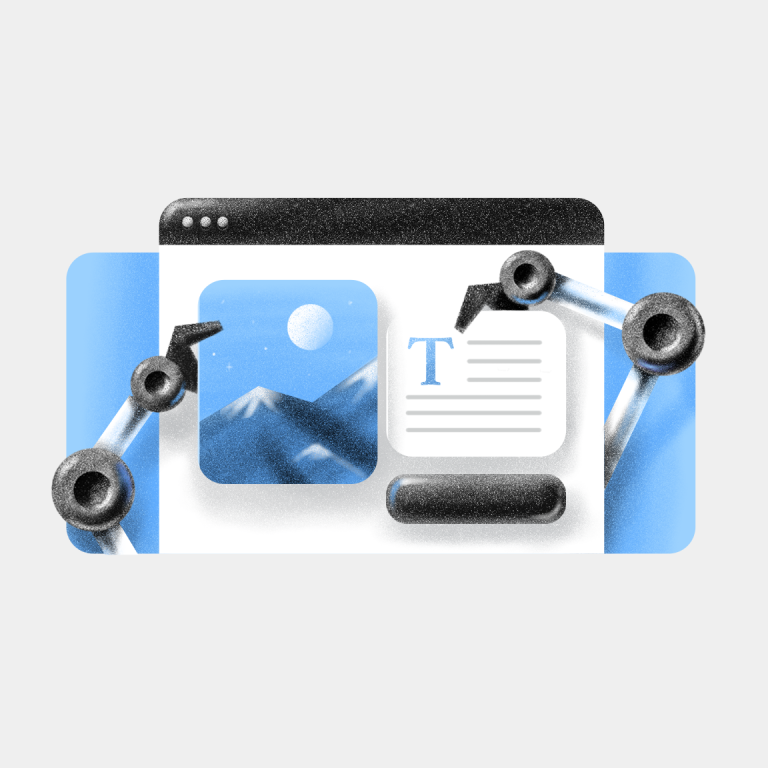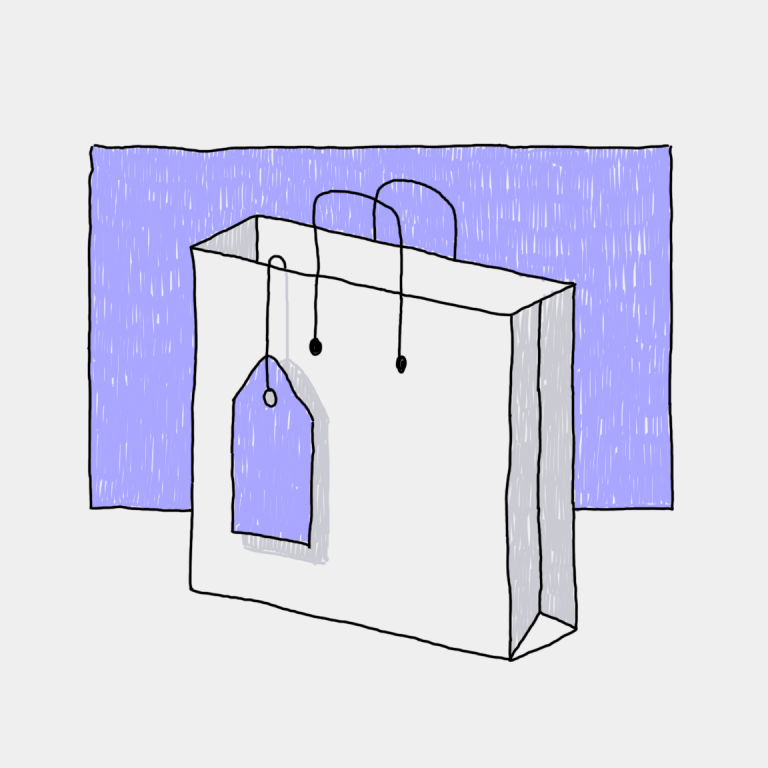In the current digital era, musicians have
Let’s jump right into the best hashtags for musicians and how to leverage their use for increased reach and sales.
The Hashtag Revolution
Hashtags have revolutionized the way content is discovered and shared on social media. Initially popularized on Twitter, these are keywords followed by the (#) symbol. Eventually, hashtags work as searchable keywords on social media that group content by theme, category, or interest. Hashtags are now used across platforms like Instagram, Facebook, TikTok, and more. Ultimately, the (#) symbol followed by a word or phrase can profoundly impact the visibility and reach of your content.
For musicians selling their music online, hashtags can be of valuable help to help boost the number of people they reach. They enable artists to categorize their posts, making them discoverable by users interested in specific content or topics. When used strategically, hashtags can enhance your online presence, boost engagement, and drive sales.
Let’s take a look at how musicians can leverage the use of hashtags to maximize their online music career and sales.
1. Research Relevant Hashtags
The first step to effective hashtag usage is thorough research. Identify hashtags that are relevant to your music genre, style, and brand. Aim for a mix of popular and niche hashtags to expand your reach while targeting a specific audience. Tools like Hashtagify and RiteTag can assist in discovering trending and related hashtags.
For instance, if you’re a jazz musician, consider using popular
2. Create a Branded Hashtag
In addition to using existing hashtags, create a unique branded hashtag for your music. This serves as a digital signature that fans can associate with your work. Your branded hashtag could be your artist’s name, an album title, or a catchphrase related to your music.
Encourage your followers to use your branded hashtag when sharing their experiences with your music. This
3. Tell a Story with Hashtags
Hashtags can be used creatively to tell a story about your music journey. Whether it’s about the inspiration behind a song, the recording process, or your experiences on tour, crafting a narrative through hashtags can captivate your audience.
For instance, if you’re about to release a new track, you could start a hashtag journey by posting about your initial inspiration (#BehindTheLyrics), sharing glimpses of the recording process (#StudioSessions), revealing the artwork (#CoverReveal), and building anticipation for the release day (#ComingSoon).
4. Harness the Power of Trending Hashtags
Stay attuned to trending topics and hashtags that are relevant to the music industry or current events. Integrating these into your posts can give your content a timely boost in visibility. However, make sure your use of trending hashtags is genuine and appropriate. Misusing or overusing them can come across as inauthentic or opportunistic.
For instance, if there’s a music awards ceremony happening, you could join the conversation by using the official event hashtag along with your own relevant content.
5. Localize Your Hashtags
Music knows no boundaries, but when you’re selling music online, it’s also important to connect with your local audience. Include
If you’re performing in a specific city, using hashtags like #NashvilleLiveMusic or #NYCMusicScene can help you draw in locals who are looking for live events and new music experiences.
6. Engage and Collaborate
Hashtags not only make your content discoverable but also offer opportunities for engagement. Monitor the hashtags you’re using to see who else is using them. Engage with posts from fans, fellow musicians, and influencers within your niche. You’ll be surprised how much exposure you can get by simply commenting on other’s posts and interacting with audiences similar to yours.
Collaborative hashtags, such as #SundayJamSessions or #ProducerCollab, can lead to exciting partnerships and
7. Consistency is Key
Consistency is crucial when it comes to using hashtags effectively. Create a list of relevant hashtags and keep it handy for each post. While switching up your hashtags to reach different audiences is important, having a set of core hashtags can help maintain a cohesive online presence. You can create multiple lists of hashtags of preference, allowing you to easily copy and paste to your post depending on the type of content.
Remember that the algorithms of different platforms prioritize recent and engaging content. Regular posting with
8. Measure and Adapt
As with any marketing strategy, analyzing the performance of your hashtag choices is crucial. Most social media platforms provide insights into the reach and engagement of your posts. Pay attention to which hashtags are driving the most engagement and clicks. You can track hashtags using Twitter analytics, Instagram analytics, or social media management software.
Based on this data, refine your hashtag strategy. If you notice some of your hashtags aren’t driving as many likes, profile views, or post interactions, consider trying alternatives or deleting them altogether. You can also track metrics using a tool like Hashtagify, and you can easily monitor metrics on the success of different hashtags. Over time, you’ll better understand what resonates with your audience and
Consider tracking your hashtag popularity, reach, and engagement. You’d want to ensure your audience sees, interacts, and shares your posts.
Best Hashtags for Musicians
When it comes to using social media for your music career, using the proper hashtags for your niche is key to reaching a larger audience and those interested in your content.
Yes, you can certainly use trendy hashtags to increase your reach, but this could actually end up hurting you more. This is because the more people who come across your content without interacting with it, the more it signals to the algorithm that your content isn’t relevant or worth promoting. Whereas, if you’re using targeted hashtags, you may reach a smaller audience, but it’ll be those likely to interact with your content, preventing the algorithm from penalizing your future content.
Hashtags can be
Here is a list of some of the most popular hashtags for musicians that can help you boost your posts and reach:
- #Music
- #Singer
- #Musiclover
- #Guitarplayer
- #Artist
- #Musicismylife
- #Classicalmusic
- #musicianlifestyle
- #Musiciansoftoday
- #Musicvideo
- #Igmusic
- #popularsongs
- #YouTubemusic
- #musica
- #Newmusic
- #Concert
- #Guitarsolo
- #Liveshow
- #Newmusicfriday
- #Bestmusicshots
- #Musiccover
Make sure to use hashtags relevant to your music genre, related to a specific event or location, and overall trendy hashtags related to selling music online.
While having some form of hashtag is better than none, try your best to always use relevant tags and never overdo it. Using too many hashtags can add a spam appearance to your content and even hurt your exposure. Always aim for a balanced number of
Ideal Amount of Hashtag for Each Social Media Platform
Instagram has a

Best hashtags for musicians on Instagram:
- #InstaMusic
- #MusicMondays
- #MusicLover
- #NewTalents
- #Igmusic
- #MusicofToday
- #GenzMusic
- #popularsongs
While Facebook is less
Example:
“🎵 Just discovered a new favorite artist, @SoulfulMelodies, and I can’t get enough of their
Best Hashtags for musicians on Facebook:
- #Musician
- #BandLife
- #MusicFans
- #MusicCommunity
- #LocalMusicians
Tik Tok
The video social media platform TikTok has no hashtag limit. It’s also more common to see users add more hashtags to their posts here than on other platforms.
Example:

Best hashtags for musicians on TikTok:
- #LiveMusic
- #MusicCover
- #OriginalMusic
- #NewArtist
When it comes to Twitter, the norm is usually one hashtag. While there are no limits, the recommendation is typically no more than two hashtags per Tweet as best practice.
Example:
“Caught an electrifying live performance by @MusicMaestro that left the crowd in awe! 🎤🎶 Unforgettable night of pure musical genius. #StageMagic”
Best music hashtags for musicians on Twitter:
- #UnsignedArtist
- #MusicPromotion
- #Concert
- #MusicIndustry
- #MusicChat
- #NewMusic
With this, we’re ultimately reminded that the quality of content and hashtag choices are key for engagement, not the number of hashtags.
Final Thoughts on Hashtags For Musicians
In the modern music landscape, leveraging hashtags is not just a trend but a necessity. By strategically using genre and
They’re like digital breadcrumbs that guide potential fans and buyers to your music. By researching, strategizing, and creatively balancing the use of hashtags, musicians can grow their careers and online music sales. Hashtags are often the only connection some have to your content, and failing to use them can cost potential supporters. Ultimately, hashtags serve as bridges connecting your content with those in your niche.
Ecwid
With seamless integration of payment gateways and secure transactions, selling music online with Ecwid offers a range of benefits that can greatly enhance your music distribution and sales. Ecwid empowers artists to connect with their audience, generate revenue, and share their musical passion. Join the Ecwid community and check out our blog for more tips on selling music online.








